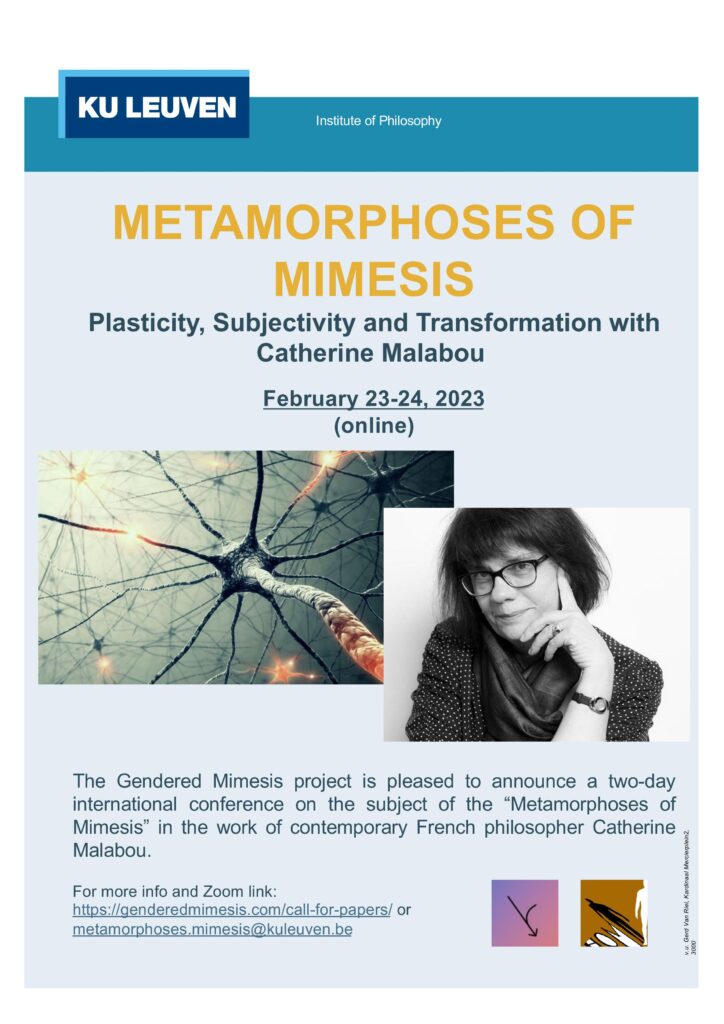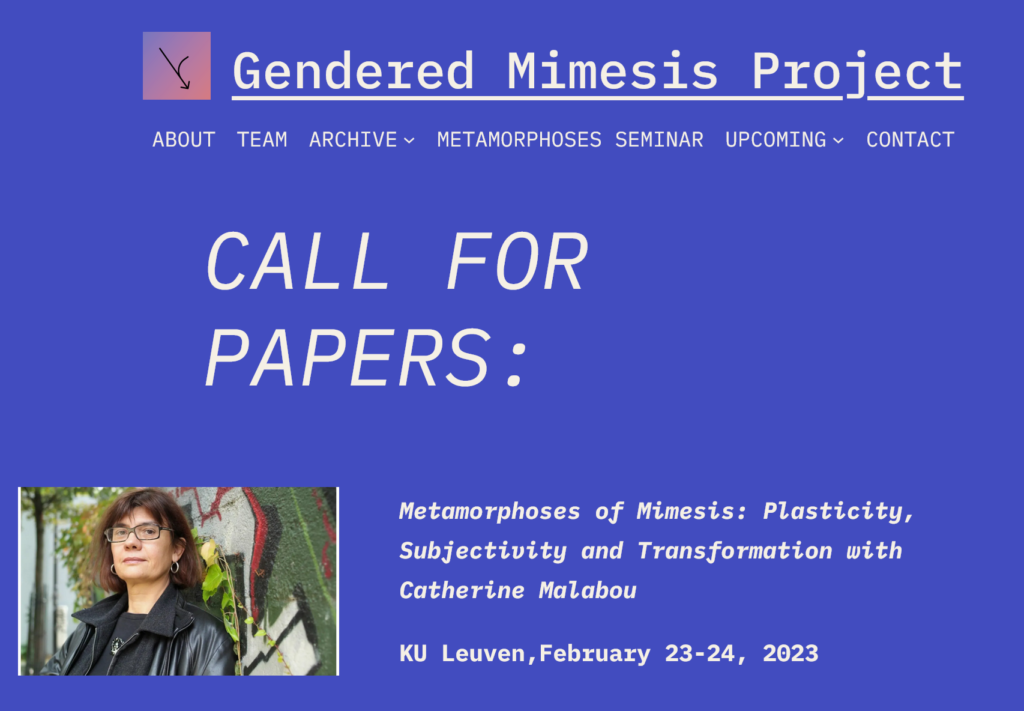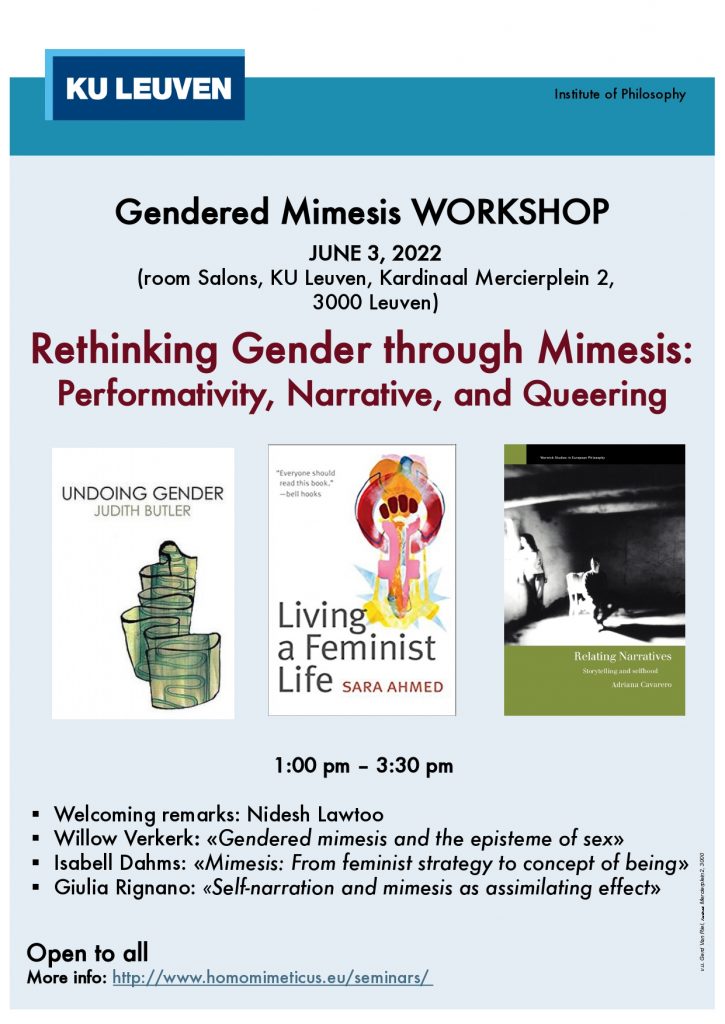In this 5th biannual Girard lecture, organized by the Dutch Girard Society, Nidesh Lawtoo steps back to the insights that, as of 2016, lead him to use the term “(new) fascism” as a warning against Donald Trump’s anti-democratic tendencies, which culminated in an insurrection on January 6. Despite many critical warnings and fascist actions, the efficacy of the affective and infective powers of mimesis never ceases to surprise. Hence, the urgency of new mimetic studies. More information HERE.
Category Archives: Conference
ACLA 2025 CFP Mimetic Studies: New Theoretical Steps for the Mimetic (Re)Turn
Organizers: Nidesh Lawtoo & Mathijs Peters
The goal of this ACLA panel is to engage productively, critically and creatively with the mimetic (re-)turn to both deepen and further the transdisciplinary field of mimetic studies. We are especially interested in the contemporary conceptual masks of mimesis that enable us to further explore the two “faces” of mimesis that go beyond good and evil: understood as a vibrant affect that destabilizes the boundaries of individuation, mimesis on the one hand generates life-negating pathologies and, on the other hand, produces life-affirmative patho-logies. More here.
Metamorphoses of Mimesis Conference (Feb. 23-24; online)

More information and Zoom Link HERE.
CfP Metamorphoses of Mimesis with Malabou (last week to submit!)

The Gendered Mimesis project is pleased to announce a two-day international conference on the subject of the “Metamorphoses of Mimesis” in the work of contemporary French philosopher Catherine Malabou. Last weeks to submit an abstract!
Gendered Mimesis New Website & CfP for Malabu Conference

/https://genderedmimesis.com/call-for-papers/
Keynote Dialogue btw Jane Bennett & Nidesh Lawtoo: From Homo MImeticus to Trans-Specied Mimesis
In this dialogue, Jane Bennett and Nidesh Lawtoo experiment with a mimetic genre to reflect on the vibrant interplay of human and nonhuman forms of communication. What style of language best approximates this mimetic entanglement? What role do non-verbal mimicry and gesture play in the birth of homo mimeticus? These are some of the questions on trans-specied mimesis the dialogue seeks to explore by going beyond nature and culture in the heterogeneous company of Nietzsche, mirroring bodies, and middle verbs.
Keynote II: Narrative as Body (Vittorio Gallese)
When navigating the parallel world of fictional narrative, we basically rely on the same brain-body resources shaped by our relation to mundane reality, since both realms are characterized by similar social practices and performative acts. Cognitive narratology reveals that readers make sense of complex narratives by relying on very few textual or discourse cues.
KEYNOTE 1. Plato on Facebook (Mikkel Borch-Jacobsen)
In Keynote 1 for the Mimetic Turn, Mikkel Borch-Jacobsen reloads Plato’s critique of mimesis for the digital age by restaging the following dialogue:
Socrates : Of the many excellences which I perceive in the order of our state, there is none which upon reflection pleases me better than the rule about Internet.
Glaucon : To what do you refer ?
Socrates : To our refusal to admit the memetic kind of media, for it certainly ought not to be received … Speaking in confidence, for you will not denounce me to Facebook and the rest of the memetic networks, all memes are made to contaminate the thinking (dianoia) of the hearers, unless as an antidote (pharmakon) they possess the knowledge of the true nature of the originals.
Introducing the Mimetic Turn (Nidesh Lawtoo)
If, for a long time, mimesis has been restricted to the logic of visual representation, aesthetic realism, and the metaphysics of sameness it presupposes, the ERC-funded project Homo Mimeticus overturns this perspective to foreground a re-turn to an immanent, affective, embodied, and relational conception of mimesis at play in different processes of becoming other. This introduction to The Mimetic Turn Conference (April 2022) presents some of the concepts driving this new theory of homo mimeticus.
GM Workshop: Rethinking Gender through Mimesis: Performativity, Narrative, Queering (June 3)

Readings & more details are available here:
